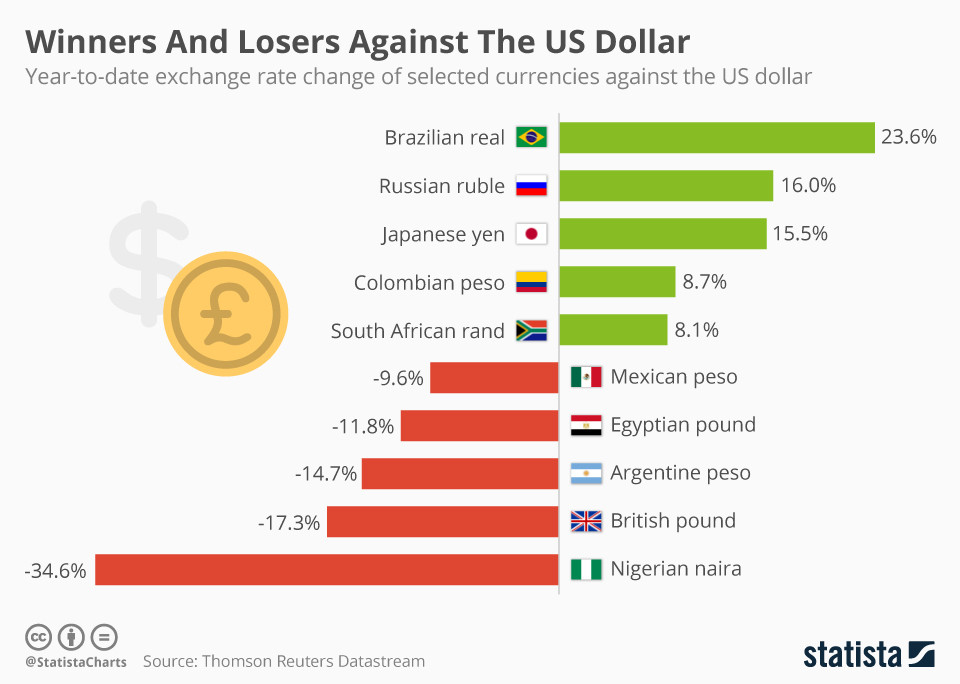Winners and losers against the US dollar

The Nigerian naira has nosedived following a fall in oil prices Image: REUTERS/Joe Penney

Get involved with our crowdsourced digital platform to deliver impact at scale
Stay up to date:
Financial and Monetary Systems
Brazil’s currency is on a winning streak.
Buoyed by investor interest and hopes that the new government will lift the economy out of recession, the Brazilian real has seen gains of almost 24% against the American dollar in the past year.

Other emerging-market currencies have turned in strong performances against the dollar. This Statista chart from 18 October, based on the 30 currencies monitored by the Thomson Reuters Datastream, shows the Russian ruble up 16% and the South African rand up 8.1%.

At the other end of the scale is the Nigerian naira, in crisis after being hit by low oil prices.
The plunge of the British pound, meanwhile, following the Brexit vote, has made it one of the year’s worst-performing currencies.
As of 18 October, the pound’s year-to-date fall against the dollar was 17.3%.
Amid fears of a "hard Brexit", investors have been shedding sterling. The currency is at a 31-year low against the dollar, and some analysts believe there may be further drops to come.

Don't miss any update on this topic
Create a free account and access your personalized content collection with our latest publications and analyses.
License and Republishing
World Economic Forum articles may be republished in accordance with the Creative Commons Attribution-NonCommercial-NoDerivatives 4.0 International Public License, and in accordance with our Terms of Use.
The views expressed in this article are those of the author alone and not the World Economic Forum.
The Agenda Weekly
A weekly update of the most important issues driving the global agenda
You can unsubscribe at any time using the link in our emails. For more details, review our privacy policy.
More on Financial and Monetary SystemsSee all
Joe Myers
April 19, 2024
Libby George
April 19, 2024
Valérie Urbain
April 19, 2024
Spencer Feingold
April 16, 2024
Joe Myers
April 12, 2024







